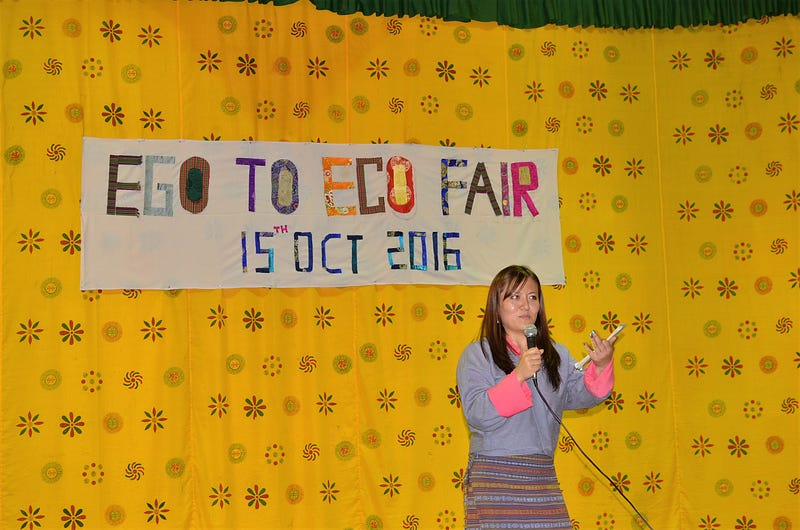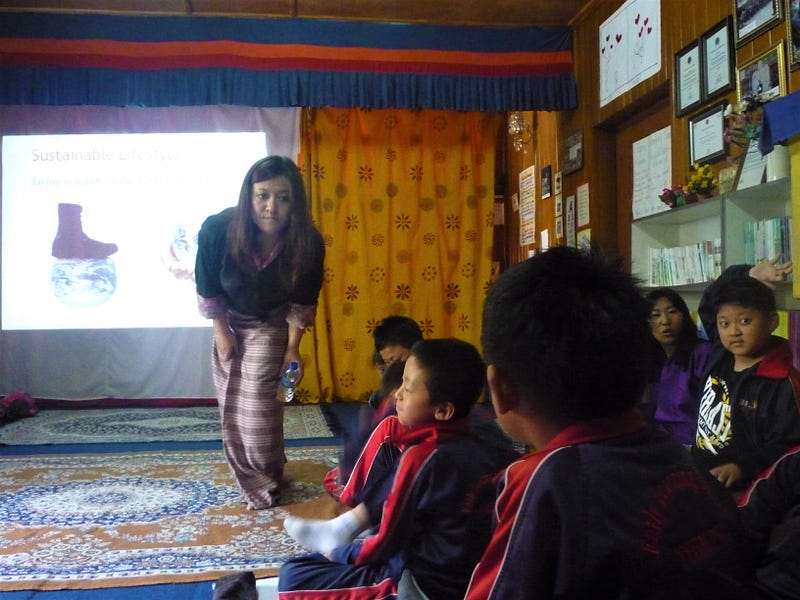Pem Lama oversees research, communication and finance for the “Green Public Procurement in Bhutan” project (GPP Bhutan) promoting sustainable public procurement in Bhutan through research and advocacy. She learned about UNITAR while attending a SWITCH-Asia conference. The SWITCH-Asia Programme was launched by the European Commission to support interested consumers, businesses and associations in Asia in “switching” to a more sustainable paradigm.

“I met someone from UNITAR there who told me about the ‘Introduction to Sustainable Consumption and Production in Asia’ course,” explains Ms. Lama. “It seemed very interesting so I decided to take it.”
In enrolling in the 3-month e-Learning course, Ms. Lama hoped to learn more about sustainable consumption and production in the region.
“The work I do is related to sustainable consumption on a governmental scale and the course helped me understand relevant methods, policies and tools in this area that can be used at a national level. Not only did I find the course interesting and helpful for learning about these tools,” says Ms. Lama, “but it also refreshed my knowledge.” In addition to the course material, Ms. Lama also appreciated the opportunity to interact with the other participants. “A lot of different examples and stories were shared in the forum and I really enjoyed it.”
The UNITAR course took an interesting turn for Ms. Lama when she started the last module. “We had to submit an implementation idea linked to sustainable consumption and production and my idea was chosen by UNITAR!” Ms. Lama’s project idea was to design a school competition to encourage students to become more sustainable. “We developed a small curriculum that introduced students and teachers at several schools to sustainability. The students and teachers then competed for the titles of Sustainable School and Sustainable Ambassadors.”

Called the “EGO-to-ECO Challenge”, the project lasted for 3 months and, at the end, participating students and teachers displayed what they had accomplished at a fair. At the beginning of the project, the students knew very little about sustainability. “Even the teachers with some knowledge on the subject did not feel confident enough to teach it,” explains Ms. Lama. Through the project’s curriculum and intervention, students and teachers learned simple daily actions that they can take to become more sustainable. “Every school came up with great ideas such as establishing rules about the use of paper, waste management, recycling, etc.”
Ms. Lama also found working with children to be very stimulating. “My usual job involves working with adults and government officials,” she says.
““Children are much more open to new ideas because they are not obstructed by doubts. They are just excited and much more receptive to ideas about sustainability. So it was definitely an interesting project for me!”
In addition to spawning the creation and implementation of the “EGO-to-ECO Challenge”, Ms. Lama says the UNITAR course was beneficial in other ways: “The policy and implementation tools that I learned through the course were the most valuable to me, and these are what I used to design the project. I am now convinced that sustainability can be introduced to a wider population.”

